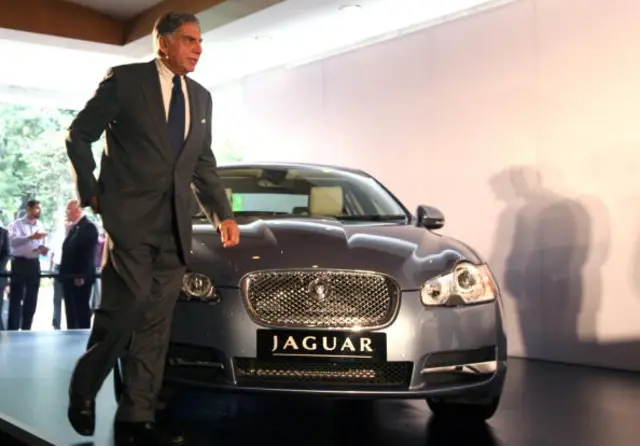A legacy of management and optimismprinted at 12:38 British Summer season Time 10 October
Sameer Hashmi
Center East enterprise correspondent, reporting from Dubai
In
2010, Tata shocked the enterprise world by saying he would retire in
2012, the 12 months he turned 75, sparking uncertainty about his successor after
greater than twenty years of management.
Following the announcement, he didn’t do any interviews.
Months later, I travelled to Cape City the place Tata was inaugurating a brand new Taj lodge. Throughout the press convention, I requested him about his choice to step down regardless of his PR workforce’s objections.
Tata calmly advised me that “the corporate was not pushing me out, I used to be selecting to go, it’s my need” and in his trademark humour added that he didn’t need to be “carried out in a field” from his workplace.
After we met a number of months later, I requested him about Jaguar Land Rover (JLR), which had reported robust gross sales for the primary time since Tata Motors acquired it in 2008. The corporate had initally confronted criticism for the acquisition however a delighted Tata mentioned, “We really feel vindicated; we at all times knew this might repay in the long run.”
In our conversations, he typically expressed his perception that Indian corporations might succeed globally. This imaginative and prescient led to different main acquisitions underneath his management – together with Tetley and Corus (now Tata Metal).
Tata was happy with India’s rising world stature and remained optimistic about it, whereas acknowledging the challenges forward.
In 2019, once I met him the final time in Mumbai, his closing phrases to me have been: “I will not be round to see it, however for India, the most effective is but to return.”

Tata Motors purchased Land Rover and Jaguar Automobiles from Ford in 2008
